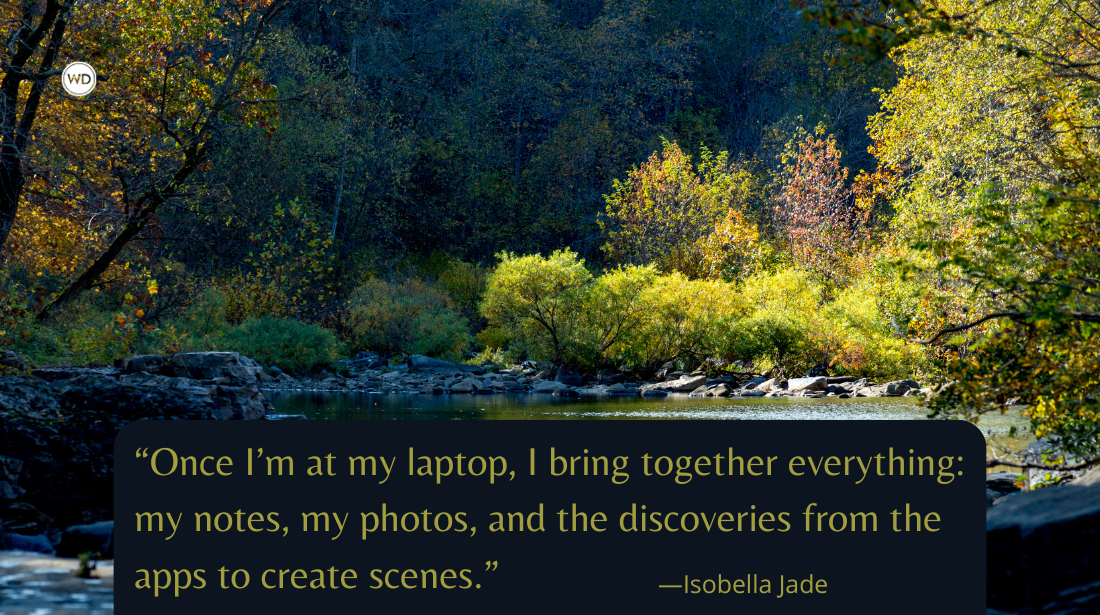Dinty W. Moore: Poking Fun at Hell and Dante’s Inferno
In this post, Dinty W. Moore shares what inspired his most recent book To Hell With It, what lesson it taught him, why writers should have fun with their writing, and more!
Dinty W. Moore is author of the memoirs Between Panic & Desire and To Hell With It; the writing guides The Story Cure, Crafting Personal Essay, and The Mindful Writer, among other books. He has published essays and stories in Harper's, The New York Times Magazine, The Southern Review, The Georgia Review, Kenyon Review, Creative Nonfiction, and elsewhere.
Moore is founding editor of Brevity, the journal of flash nonfiction and co-editor of The Best of Brevity: Twenty Years of Groundbreaking Flash Nonfiction. He teaches master classes and workshops across the United States as well as in Ireland, Scotland, Spain, Switzerland, Canada, and Mexico.
In this post, Moore shares what inspired his most recent book To Hell With It, what lesson it taught him, why writers should have fun with their writing, and more!
*****
Name: Dinty W. Moore
Title: To Hell With It: Of Sin and Sex, Chicken Wings, and Dante's Entirely Ridiculous, Needlessly Guilt-Inducing Inferno
Publisher: University of Nebraska Press
Release date: March 1, 2021
Genre: Memoir/Creative Nonfiction
Previous titles: Dear Mister Essay Writer Guy: Advice and Confessions on Writing, Love, and Cannibals; The Mindful Writer: Noble Truths of the Writing Life; Between Panic & Desire; The Accidental Buddhist: Mindfulness, Enlightenment, and Sitting Still
Elevator pitch for the book: What would the world be like if eternal damnation was not hanging constantly over our sheepish heads, stoking our self-loathing and making so many of us vaguely miserable? To Hell with It pokes fun at Dante's ambitious and somewhat bizarre poem, Divine Comedy, and explores the ways in which the poet's gruesome imagination, helped along by shady theologians, shaped western culture and made us all a little more miserable than we need to be.
(WD uses affiliate links.)
What prompted you to write this book?
I was raised Roman Catholic, spent 12 years in Catholic school, and never could stomach some of the truths I was instructed to believe, such as the entirely farfetched idea that a "loving God" would create human beings and then sentence them to burn in hell for eternity, often because of simple human weakness.
The more I read about early religion, the more I came to understand how much of Catholic and Christian theology was clearly man-made, and designed to manipulate rather than to inspire spiritual awakening. Plus, I love poking fun at silliness, and Dante's long poem is a rather bizarre and ridiculous mix of horror-movie imagery and revenge fantasy.
How long did it take to go from idea to publication?
Most of the books I have published over the years took about two or three years to write, and roughly another year to go through the publication process. This one took 12 years, mainly because I kept losing faith in my idea and myself and at least three times walked away from the project.
But I would eventually come back and try again, and now that it is done, I am rather proud of my own stubbornness.
Were there any surprises or learning moments in the publishing process for this title?
I was surprised by just how perfect the cover art turned out to be. Authors are not always that lucky.
Were there any surprises in the writing process for this book?
The learning moment was about persistence. And also, just how much fun it was to illustrate my own book, with peculiar little cartoon people who remind me of the doodles I scrawled during the more boring moments of grade school religion class.
What do you hope readers will get out of your book?
Two things: (1) A few chuckles, and (2) Some serious reflection about the role of guilt in our lives, the hypocrisy of most organized religions, and how unproductive some of our spiritual "myths" really are.
If you could share one piece of advice with other authors, what would it be?
Enjoy yourself. If you are having a good time writing the book, readers will likely enjoy what they are reading. Writing is hard work, but it doesn’t have to be a slog.
*****
Research, interview, and explore the subjects that interest you. Then write about what you've learned in Writing Nonfiction 101: Fundamentals. Writing nonfiction is a great way for beginner and experienced writers to break into the publishing industry.
Robert Lee Brewer is Senior Editor of Writer's Digest, which includes managing the content on WritersDigest.com and programming virtual conferences. He's the author of 40 Plot Twist Prompts for Writers: Writing Ideas for Bending Stories in New Directions, The Complete Guide of Poetic Forms: 100+ Poetic Form Definitions and Examples for Poets, Poem-a-Day: 365 Poetry Writing Prompts for a Year of Poeming, and more. Also, he's the editor of Writer's Market, Poet's Market, and Guide to Literary Agents. Follow him on Twitter @robertleebrewer.








